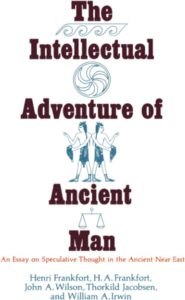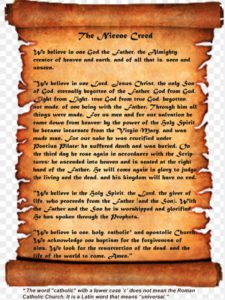
Why do Christians call the day of the crucifixion of Jesus “Good Friday”? How can an execution that results from a miscarriage of justice be good? The Christian proclamation throughout history is that it is Good Friday because on the cross of calvary, Christ took the sinner’s place (Greek: ἀντί anti, ὑπέρ huper) /1/ in bearing the guilt of man’s sin and suffering the divine punishment as our substitute in order to satisfy divine justice and bring reconciliation between God and man. “All we like sheep have gone astray; we have turned – every one – to his own way; and the Lord has laid on him the iniquity of us all…Yet it was the will of the Lord to crush him; he has put him to grief; when his soul makes an offering for guilt, he shall see his offspring; he shall prolong his days; the will of the Lord shall prosper in his hand” (Isa. 53: 6, 10). Penal-substitution is the heart of the atonement, Christ’s work of salvation.
In recent times, some theologians have highlighted alternative theories to the penal substitutionary death of Christ. I shall only focus on two of the more influential alternative theories today – the moral influence theory and the Christus Victor theory. The problem with these theories of atonement is not that they are entirely wrong. They rightly explain some aspects of Christ’s death. However, they are in reality attempts to avoid the stumbling block of penal-substitution which causes offence to modern sensibilities. These theories are deficient since they emphasize on secondary features or by-products of the atoning death of Christ in order to evade penal-substitution which is the heart of atonement. Continue reading “Penal-Substitution as Heart of Christ’s Atonement and its Accomplishments”
 Many critical scholars in Western universities suggest that the biblical Creation and Flood stories borrowed ideas from Ancient Near Eastern Texts (ANET). For example, the Creation story in Genesis must be influenced by the Babylonian creation story of Enuma Elish since the story in Genesis is briefer and the preserved records of Genesis belong to a later date. However, Kenneth Kitchen rejects this notion. He writes, “The common assumption that the Hebrew account is simply a purged and simplified version of the Babylonian legend (applied also to the Flood stories) is fallacious on methodological grounds. In the Ancient Near East, the rule is that simple accounts or traditions may give rise (by accretion and embellishment) to elaborate legends, but not vice versa. In the Ancient Orient, legends were not simplified or turned into pseudo-history (historicized) as has been assumed for early Genesis.”/1/
Many critical scholars in Western universities suggest that the biblical Creation and Flood stories borrowed ideas from Ancient Near Eastern Texts (ANET). For example, the Creation story in Genesis must be influenced by the Babylonian creation story of Enuma Elish since the story in Genesis is briefer and the preserved records of Genesis belong to a later date. However, Kenneth Kitchen rejects this notion. He writes, “The common assumption that the Hebrew account is simply a purged and simplified version of the Babylonian legend (applied also to the Flood stories) is fallacious on methodological grounds. In the Ancient Near East, the rule is that simple accounts or traditions may give rise (by accretion and embellishment) to elaborate legends, but not vice versa. In the Ancient Orient, legends were not simplified or turned into pseudo-history (historicized) as has been assumed for early Genesis.”/1/ Kairos Podcast 6: Early Heresies Part 2/6
Kairos Podcast 6: Early Heresies Part 2/6